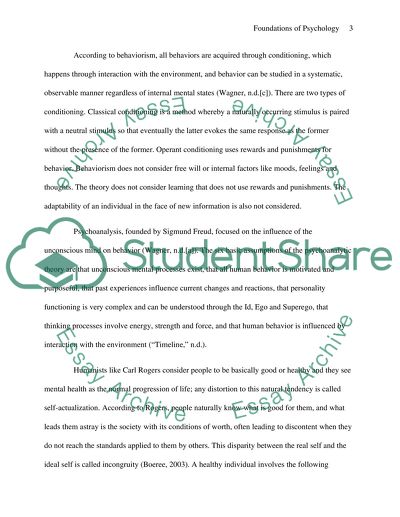Foundations of Psychology Essay Example | Topics and Well Written Essays - 1000 words. Retrieved from https://studentshare.org/miscellaneous/1511414-foundations-of-psychology
Foundations of Psychology Essay Example | Topics and Well Written Essays - 1000 Words. https://studentshare.org/miscellaneous/1511414-foundations-of-psychology.


